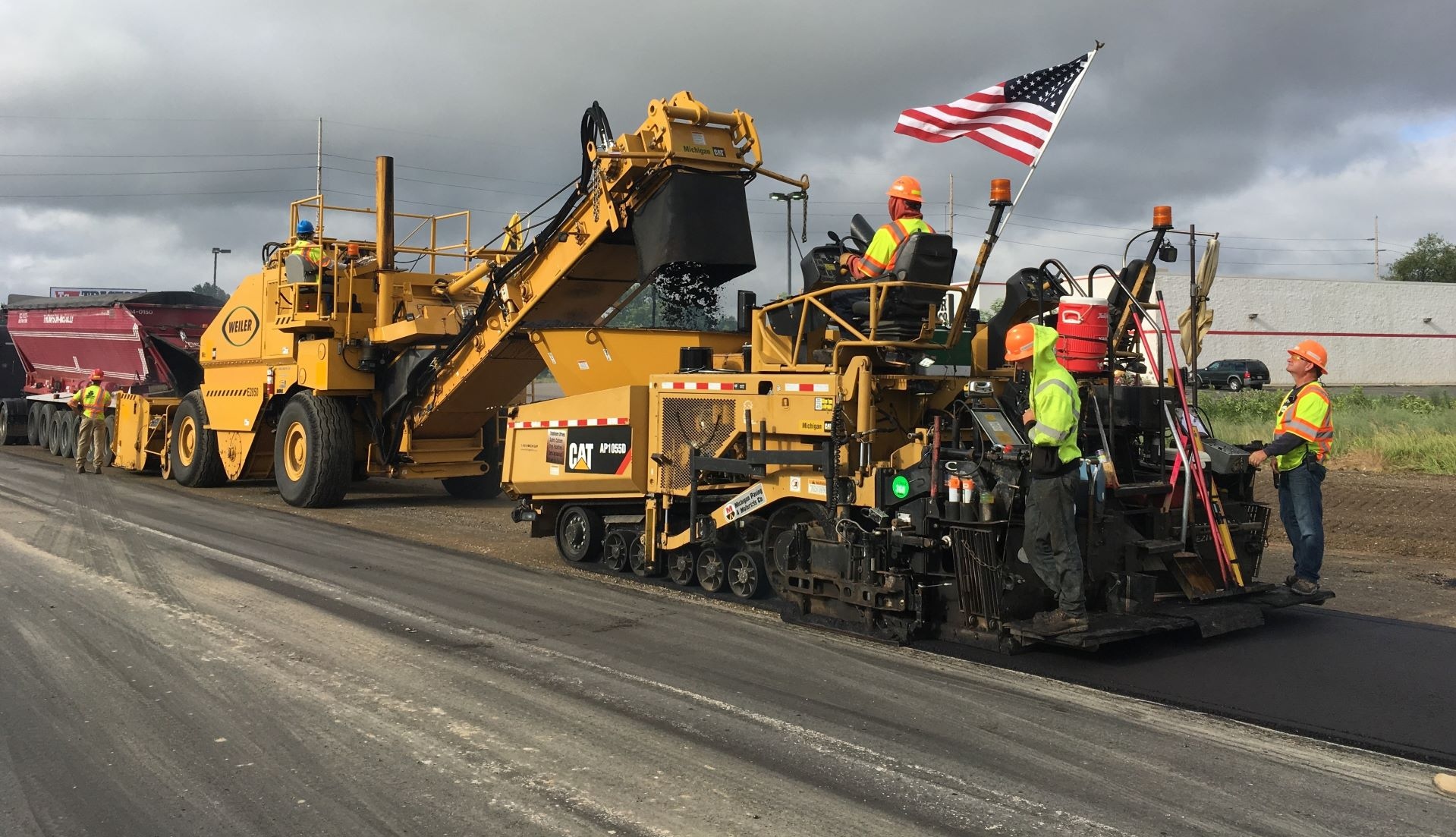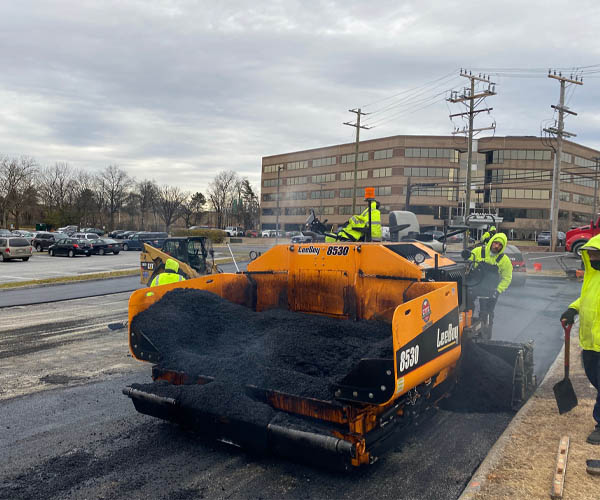Asphalt Paving Acworth GA: Local Experts Delivering Top-Tier Paving for Your Space
Understanding the Various Kinds Of Asphalt Paving Available Today
In the world of building and facilities, an extensive understanding of the different types of asphalt paving is essential for ideal project outcomes. From the robust Hot Mix Asphalt, designed for high-traffic locations, to the ecologically aware Porous Asphalt that facilitates water management, each type provides distinct advantages customized to details needs.

Warm Mix Asphalt
What makes warm mix asphalt a recommended selection for roadway building and repair work? Hot mix asphalt (HMA) is favored for its resilience, adaptability, and performance under differing problems. Composed of a mixture of aggregates and liquid asphalt cement, HMA is produced at high temperatures, commonly in between 300 ° F and 350 ° F (asphalt paving acworth ga). This high-temperature application permits optimal bonding and compaction, resulting in a smooth, resistant surface that can hold up against rush hour tons and negative weather condition.
HMA's capacity to be tailored to specific project requirements is one more considerable advantage. Different ranks and formulas can be utilized to boost properties such as versatility, resistance to contortion, and long life. Additionally, hot mix asphalt can be promptly set up and available to traffic, reducing disturbance during building.
Ecological factors to consider additionally play a function in the preference for HMA. The product is recyclable, and reclaimed asphalt sidewalk (RAP) can be reused, promoting sustainability in roadway building practices. On the whole, hot mix asphalt sticks out as a reputable alternative, effectively giving a long-lasting, high-performance surface that meets the demands of contemporary infrastructure.
Cold Mix Asphalt
Cold mix asphalt is a flexible alternative to hot mix asphalt, especially matched for specific applications such as patching and surface therapies. This sort of asphalt is generated at ambient temperature levels, permitting much easier handling and application without the demand for considerable heating devices.
Typically composed of asphalt emulsions or lowerings, cold mix asphalt can be mixed on-site or bought pre-mixed. Its buildings enable it to bind well with existing pavement, making it a reliable remedy for repairing holes, fractures, and various other surface area issues. It can be used in a selection of climate problems, offering a practical option for year-round maintenance.

However, while cool mix asphalt is optimal for temporary repairs, it might not provide the same durability or resilience as warm mix asphalt under rush hour conditions. It is best used for low-traffic locations or as a short-lived solution up until more permanent repair services can be implemented.
Warm Mix Asphalt
While hot mix asphalt has long been the standard for road building and construction, cozy mix asphalt (WMA) has actually arised as an ingenious choice that balances efficiency with environmental considerations. WMA is generated at considerably lower temperatures-- usually in between 215 ° F and 275 ° F-- compared to warm mix asphalt, which is heated up to around 300 ° F. This decrease in temperature level not just decreases energy usage however likewise reduces greenhouse gas exhausts during production.
The technology behind WMA involves making use of additives or methods that enable better workability at reduced temperature levels. These can consist of chemical additives, frothing processes, or a mix of both. Consequently, WMA preserves the needed homes for toughness and efficiency while providing a more eco-friendly option.

Permeable Asphalt
Porous asphalt stands for a forward-thinking approach in pavement design, prioritizing both capability and environmental sustainability. This innovative material is specifically engineered to allow water to penetrate via its surface area, effectively decreasing runoff and advertising groundwater recharge. As a result, permeable asphalt is an excellent choice for locations vulnerable to flooding or where stormwater monitoring is crucial.
The composition of porous asphalt varies from typical asphalt, including a higher percent of gaps More Bonuses that assist in drain. This residential property not just minimizes surface water accumulation yet additionally assists reduce concerns like hydroplaning and boosts lorry grip during damp problems. asphalt paving acworth ga. In addition, permeable asphalt can add to metropolitan heat island decrease, as it permits better dissipation and cooling effects in city settings
In terms of installation, permeable asphalt requires mindful consideration of underlying water drainage systems to make certain ideal performance. Upkeep generally entails regular evaluations and cleansing to stop clogging from debris, which can harm its permeability. get redirected here Overall, permeable asphalt works as a lasting paving solution that lines up with modern ecological objectives, making it a progressively popular choice for both private and public tasks.
Rubberized Asphalt
Rubberized asphalt is an advanced paving material that includes recycled rubber, generally sourced from scrap tires, right into the asphalt mix. This innovative technique not just enhances the performance of standard asphalt yet likewise promotes ecological sustainability by recycling waste materials. The addition of rubber enhances the versatility and sturdiness of the sidewalk, making it immune to cracking and deformation under varying temperature level conditions.
One of the considerable advantages of rubberized asphalt is its capability to lower noise air pollution. The rubber bits absorb noise, leading to quieter roads, which is specifically beneficial in metropolitan locations. This type of asphalt supplies improved skid resistance, improving security for automobiles.
Rubberized asphalt likewise adds to prolonging the life expectancy of road surfaces, leading to reduced maintenance costs with time. This long life is specifically beneficial for high-traffic locations where deterioration are sped up. Additionally, its resistance to dampness infiltration aids lessen the danger of water damages, better boosting resilience.
Verdict
In summary, the range of asphalt paving types-- Hot Mix Asphalt, Cold Mix Asphalt, Cozy Mix Asphalt, Porous Asphalt, and Rubberized Asphalt-- each meet unique functions that satisfy diverse construction and upkeep requirements. These options not just boost roadway high quality but additionally add to sustainability through decreased energy consumption and boosted water administration. Understanding these distinctions is important for picking the ideal asphalt kind, eventually ensuring effective and efficient leading options in various environments.
From the durable Hot Mix Asphalt, designed for high-traffic locations, to the environmentally mindful Porous Asphalt that helps with water monitoring, each type presents unique advantages tailored to details requirements.Normally composed of asphalt solutions or cutbacks, chilly mix asphalt can be combined on-site or bought pre-mixed.While warm mix asphalt a fantastic read has actually long been the criterion for road building, cozy mix asphalt (WMA) has emerged as an innovative choice that balances performance with ecological factors to consider.Rubberized asphalt is a sophisticated paving material that includes recycled rubber, generally sourced from scrap tires, right into the asphalt mix.In recap, the variety of asphalt paving types-- Warm Mix Asphalt, Cold Mix Asphalt, Warm Mix Asphalt, Porous Asphalt, and Rubberized Asphalt-- each satisfy distinctive features that cater to diverse building and upkeep demands.